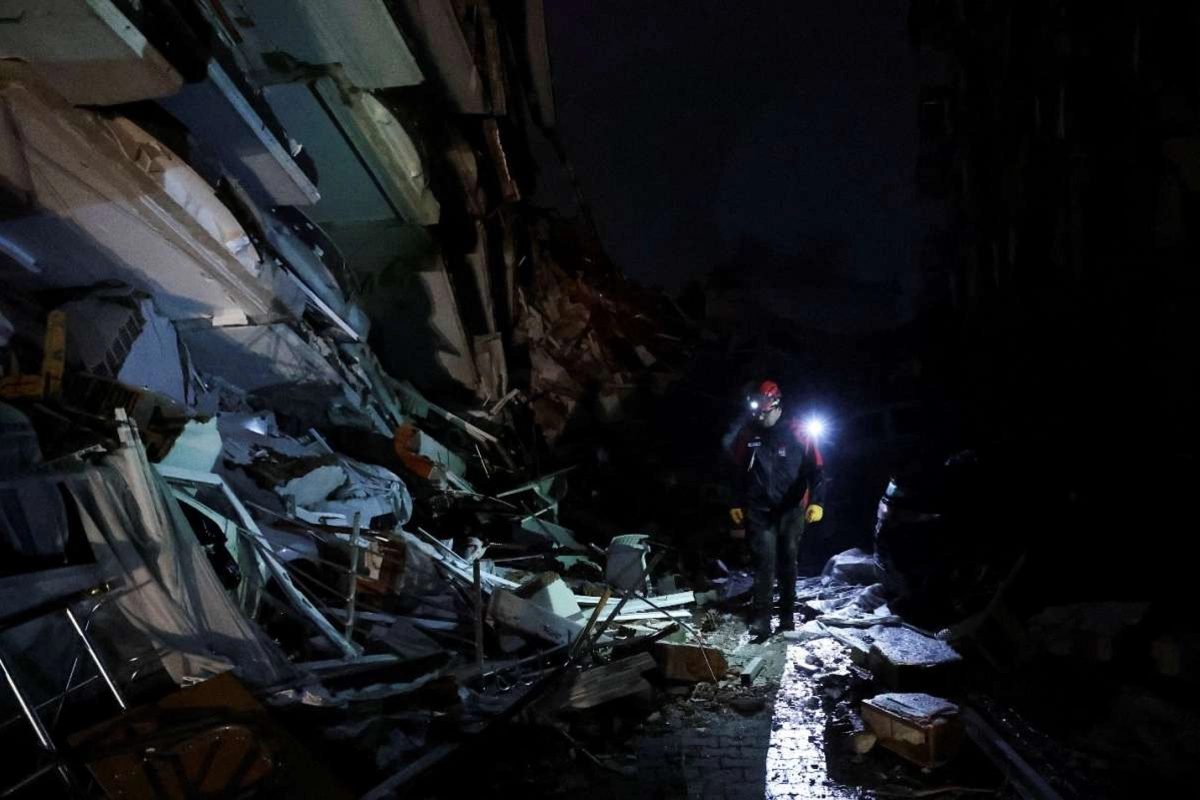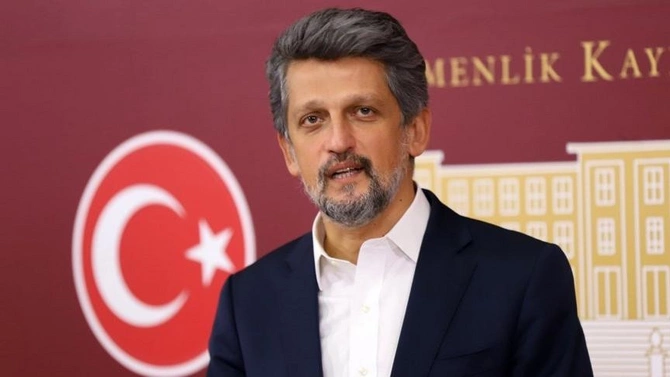
It’s an understatement to call Armenia-Turkiye relations ‘frosty.’ However, with the dispatch of Armenian aid workers, there are encouraging signs of a reopening of dialogue.
A member of the rescue team walks next to collapsed buildings, following an earthquake in Antakya, Turkiye February 6, 2023. REUTERS/Umit Bektas
Numerous international teams have headed to Turkiye to help with the aftermath of this month’s terrible earthquake. Amongst them is a group of rescue workers from Armenia. For many observers, that might come as a surprise. It’s an understatement to call Armenia-Turkiye relations ‘frosty.’ The countries’ shared borders have been closed since April 1993 in reaction to Armenia’s occupation of large swathes of Azerbaijan. The countries came close to building bridges in both 2007 and 2022, direct Istanbul-Yerevan flights have resumed, and hopes of reopening the land border do remain.
But continuing delays with the settlement of a comprehensive Armenia-Azerbaijan peace agreement continue to have a knock-on effect. Under the surface, there’s also the spectre of 1915. For many, particularly Armenians of the diaspora, Turkish-Armenian relations are overwhelmingly overshadowed by the appalling deportations and massacres of that era. To such Armenians, it’s of paramount significance that Ankara chooses not to define as ‘genocide’ the 1915 deaths of between 660,000 and 1.5 million. Meanwhile, for Turks, the 1915 issue – while terrible – has to be seen in the context of geopolitical realities and of the other massive upheavals throughout the continent at the same time – including the far less publicized deaths of over a million Muslim Ottomans who died in flight from the Balkans in 1912-14.
Without belittling the 1915 events, realist Armenians have long argued that the ‘genocide’ impasse is “extraneous to the strategic considerations,”[1] questioning a mindset among some compatriots that automatically equates Turks with the perpetrators of historic massacres. Meanwhile, in Turkiye, there have been various initiatives to underline at least some basic respect for the now-small Armenian community. In Diyarbakir, the “biggest Armenian church in the Middle East” reopened in 2022 after a seven-year renovation.

Garo Paylan is an Armenian elected parliamentarian in Turkiye, calling for the opening of the Turkish-Armenian border. Image: yesilgazete.org
The city is represented in the Turkish National Assembly by Garo Paylan, an opposition politician of the HDP party and one of only three Armenian MPs to have been elected to power in the country in recent decades. He has been calling for the opening of Turkish-Armenian borders and for working towards regional peace initiatives in the Caucasus. However, it hasn’t been an easy ride. In 2016 Paylan accused the justice minister of slander when a group of lawmakers descended into fistfights over attempts to remove their constitutional rights to immunity. He was in the news again when the HDP was collectively challenged legally over accusations of party connections with the outlawed Kurdish group, the PKK.
The road to building bridges between Armenia and Turkiye will undoubtedly have further blockages. Still, this week’s dispatch of Armenian helpers to the earthquake zone might just help restart the stuttering dialogue. Indeed, news reports claim that Turkish President Recep Tayyip Erdoğan has already thanked Yerevan for the support, saying that it would contribute to “further dialogue” between the states.
Let’s hope so.
[1] Gerard/Jirair Libaridian, former advisor (1991-1998) to Armenian President Levon Ter-Petrossian, now history professor at the University of Michigan
Share on social media